Are you dreaming of crossing the finish line at the iconic Boston Marathon? Achieving this milestone requires more than just lacing up your running shoes.
Qualifying for the Boston Marathon is a coveted achievement, symbolizing dedication, perseverance, and excellence in long-distance running. But how do you qualify for the Boston Marathon?
To earn a spot among the elite runners on Patriots’ Day, participants must meet stringent qualifying standards set by the Boston Athletic Association (BAA).
These standards vary based on age and gender, demanding exceptional performance in previous marathons.
From the bustling streets of Hopkinton to the triumphant strides down Boylston Street, runners aspire to earn their place in this prestigious event, where history and athleticism converge.
Understanding the intricacies of qualification criteria, diligently training, and embracing the challenge are all crucial steps to securing a coveted bib for the Boston Marathon.
How Do You Qualify for the Boston Marathon?
The Boston Marathon, with its historic legacy and challenging course, is a pinnacle achievement for many runners. But before you can lace up your shoes and hit the pavement of Heartbreak Hill, you’ll need to meet the qualifying standards.
Here’s your comprehensive guide to understanding and achieving that coveted Boston Marathon qualifying time (BQ):
Qualification Standards
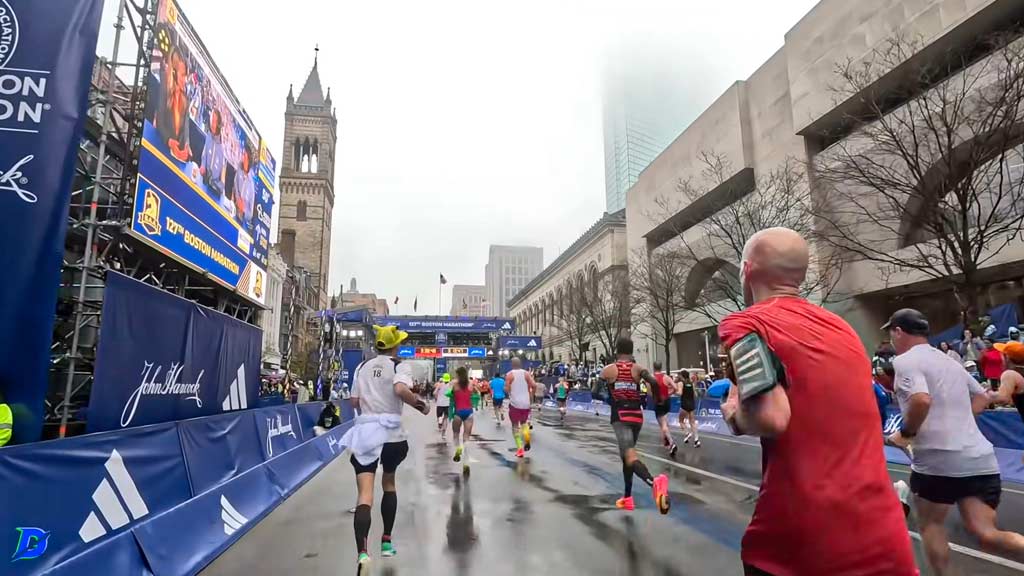
The first step in qualifying for the Boston Marathon is understanding the qualification standards established by the BAA. These standards are based on age and gender and require runners to complete a qualifying marathon within a specified time frame.
The qualifying times are subject to change each year and are typically announced by the BAA well before the registration period.
For example, the qualifying standard for the 2024 Boston Marathon for men aged 18-34 is a marathon time of 3 hours and 10 minutes or faster, while for women in the same age group, it is 3 hours and 30 minutes or faster.
As age increases, the qualifying times become more lenient, reflecting the physiological changes with age.
Qualifying Window
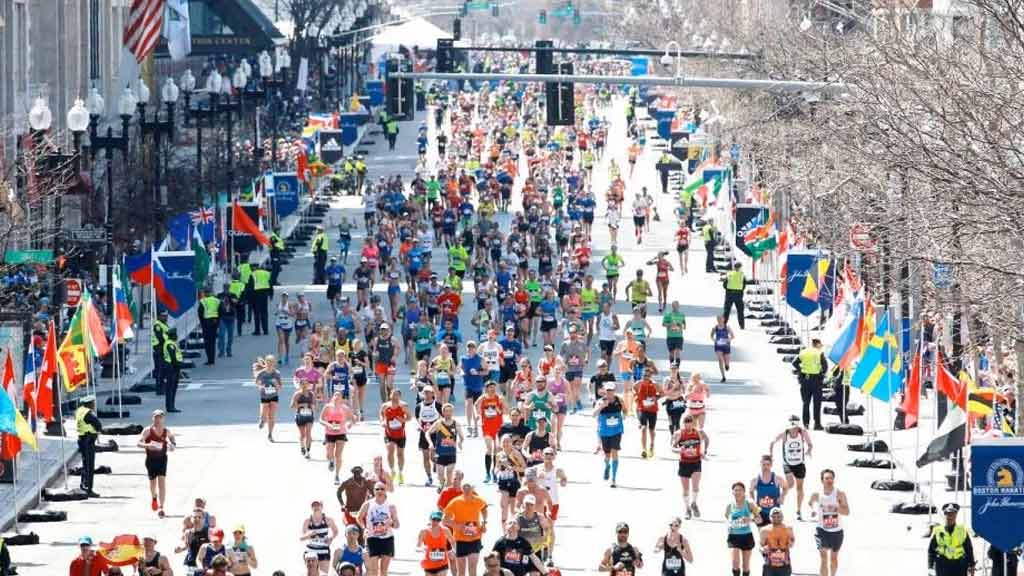
The qualifying window for the April Boston Marathon opens 18 months before the race and closes when the registration process concludes (usually around September).
For example, the qualifying window for the 2025 Boston Marathon (April 15, 2025) opens on September 1, 2023, and closes sometime in September 2024.
Eligibility Criteria for the Boston Marathon
In addition to meeting the qualifying standards, runners must meet specific eligibility criteria to participate in the Boston Marathon.
These criteria ensure fairness and uphold the integrity of the race. Here’s a closer look at each criterion:
Age Requirement
The Boston Marathon is open to runners at least 18 on race day. This age requirement is in place to ensure that participants are physically and mentally prepared to tackle the challenging 26.2-mile course.
Younger runners may still participate in other races and work towards qualifying for Boston once they meet the age requirement.
Valid Qualifying Race
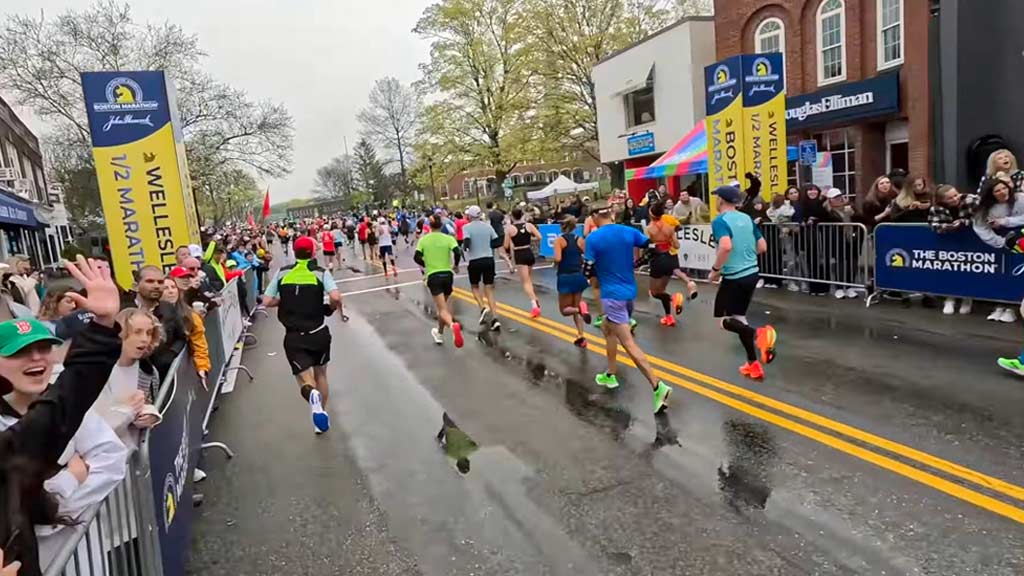
To qualify for the Boston Marathon, runners must complete a marathon on a USATF-certified course. This certification ensures that the course accurately measures the total marathon distance and meets specific standards for accuracy and safety.
Additionally, the qualifying race must be completed within a specific time before the Boston Marathon. Typically, the BAA specifies a qualifying window of approximately 18 months leading up to the event.
Registration Process
Meeting the qualifying standards does not guarantee entry into the Boston Marathon. With thousands of runners vying for limited spots, the BAA implements a rigorous registration process to manage demand.
The registration window typically opens several months before the race and operates on a rolling admission basis. During this time, qualified runners must submit their registration application and proof of their qualifying time.
Prioritizing Fast Runners
However, due to the high entry demand, the BAA prioritizes runners with faster qualifying times during the registration process.
This means that even if a runner meets the qualifying standard, they may not secure a spot if their qualifying time is not competitive enough relative to other applicants.
What Strategies Should I Follow to Qualify for the Boston Marathon?
Qualifying for the Boston Marathon is a significant goal for many runners, representing a pinnacle achievement in long-distance running.
To earn a spot in this prestigious race, runners must meet specific time standards set by the Boston Athletic Association (BAA).
In this guide, we’ll explore a range of strategies to help you increase your chances of qualifying for the Boston Marathon.
Set Clear and Realistic Goals
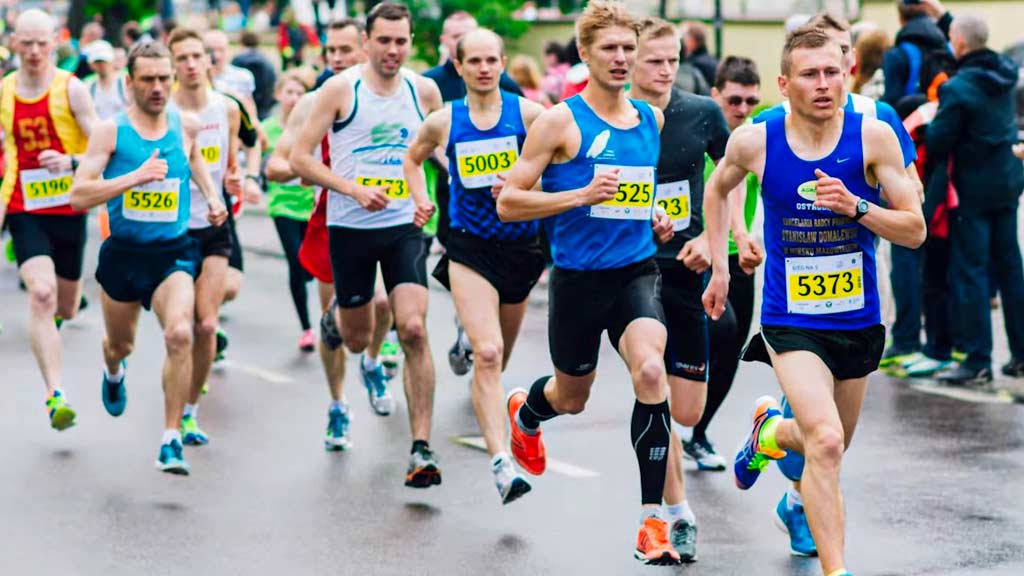
Before embarking on your journey to qualify for the Boston Marathon, setting clear and realistic goals is essential.
Determine your target qualifying time based on your current fitness level, past race performances, and the qualifying standards for your age group. Setting a specific goal will motivate you and focus throughout your training.
Choose the Right Qualifying Race
Selecting the proper marathon for your qualifying attempt is crucial. Look for races with fast and flat courses conducive to achieving your goal time.
Consider factors such as weather conditions, course elevation, and race organization. Choosing a well-established marathon with a reputation for being a Boston Qualifier can increase your chances of success.
Follow a Structured Training Plan
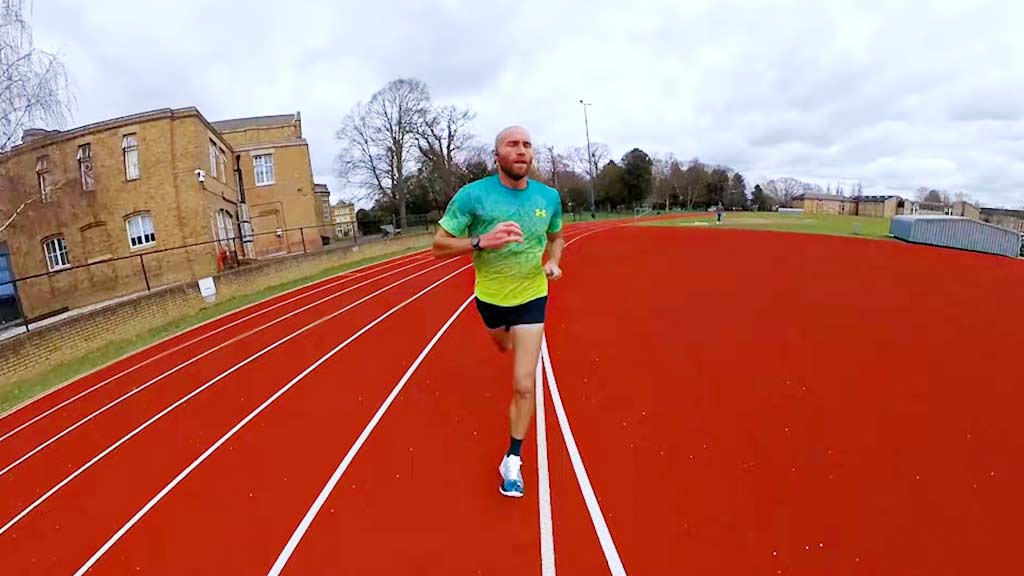
A structured training plan is essential for preparing your body to meet the demands of marathon running and achieve your qualifying goal. Work with a certified running coach or utilize reputable training programs tailored to your fitness level and goals.
Incorporate a mix of long runs, speed work, tempo runs, and recovery days into your training regimen to build endurance, speed, and resilience.
Gradually Increase Mileage and Intensity
Avoid the temptation to ramp up your mileage or intensity too quickly, which can lead to injury or burnout. Instead, follow a gradual progression in your training, increasing mileage and intensity incrementally over time.
Listen to your body and prioritize rest and recovery to prevent overtraining and optimize performance on race day.
Focus on Consistency
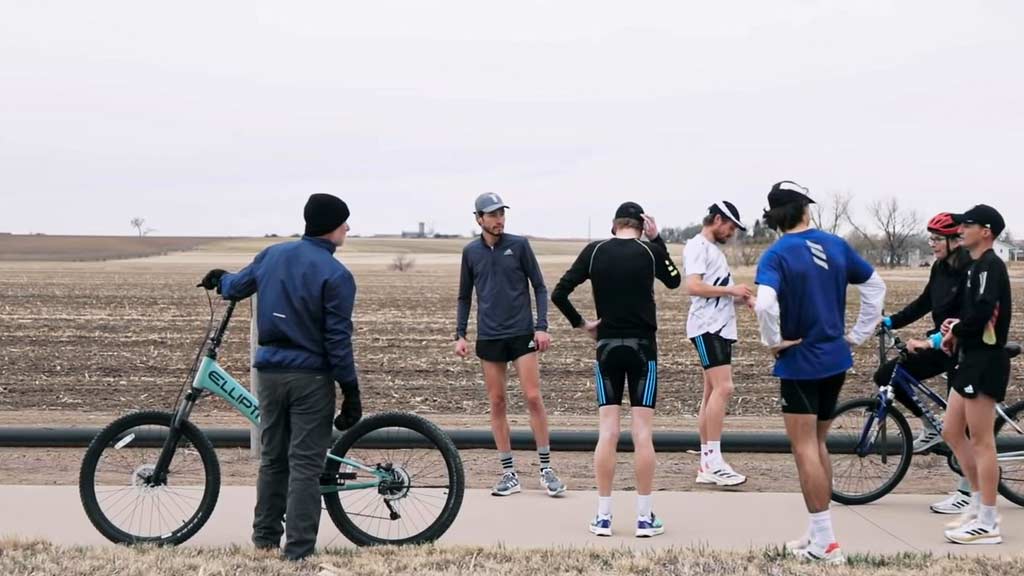
Consistency is vital when training for a marathon and pursuing a Boston Qualifying time. Stick to your training plan, even when faced with challenges such as fatigue, busy schedules, or inclement weather.
Consistent training builds fitness, mental toughness, and race readiness, ultimately improving your chances of achieving your goal.
Practice Race-Specific Pacing
Practice race-specific pacing during your long runs and tempo workouts to familiarize yourself with the pace required to achieve your qualifying time.
Use a GPS watch or smartphone app to track your pace and ensure you’re hitting your target splits consistently. Learning to gauge your effort and maintain a steady pace throughout the marathon distance is critical for success.
Incorporate Strength and Cross-Training

In addition to running, incorporate strength training and cross-training activities into your routine to improve overall fitness, prevent injuries, and enhance performance.
Focus on exercises that target key muscle groups used in running, such as the core, hips, glutes, and legs. Activities like cycling, swimming, yoga, and Pilates can also complement your running and help you stay injury-free.
Fine-Tune Your Nutrition and Hydration
Nutrition and hydration play a significant role in marathon performance and recovery. Experiment with different fueling strategies during your long runs to determine what works best for you regarding pre-race meals, mid-race fueling, and post-race recovery nutrition.
Stay hydrated throughout your training and race day, paying attention to electrolyte balance and fluid intake.
Practice Mental Preparation
Marathon running is as much a mental challenge as a physical one. Practice mental preparation techniques such as visualization, positive self-talk, and mindfulness to build mental toughness and resilience.
Develop strategies to cope with discomfort, setbacks, and race-day nerves, allowing you to stay focused, confident, and motivated from start to finish.
Stay Flexible and Adjust as Needed
Finally, stay flexible and be prepared to adjust your training and race strategy based on feedback from your body and performance indicators.
Listen to your instincts, seek guidance from experienced coaches or mentors, and trust in your preparation to achieve your Boston Qualifying goal.
FAQs
What are the current qualifying standards for the Boston Marathon?
The qualifying standards for the Boston Marathon vary based on age and gender. As of 2024, for example, the qualifying time for men aged 18-34 is 3 hours and 10 minutes, while for women in the same age group, it’s 3 hours and 30 minutes.
Can I qualify for the Boston Marathon at any marathon race?
No, not every marathon is a Boston Qualifier. To qualify for the Boston Marathon, you must complete a marathon on a USATF-certified course within a specific time frame before the Boston Marathon.
Choosing a race with a reputation for being a Boston Qualifier is essential to ensure your qualifying time is valid.
How many runners typically qualify for the Boston Marathon each year?
The number of qualifiers for the Boston Marathon varies yearly, depending on registration limits and demand. However, the Boston Athletic Association typically accepts tens of thousands of qualified runners each year to participate in the race.
What if I don’t meet the qualifying standards for the Boston Marathon?
If you don’t meet the qualifying standards for the Boston Marathon, there are still other ways to participate, such as through charity entries or as part of a qualified team. Additionally, some runners may pursue a BQ (Boston Qualifying) time at subsequent races after initial attempts.
Do I need to qualify again for the Boston Marathon if I’ve previously qualified?
Runners must qualify for the Boston Marathon each year they wish to participate. Qualifying times from previous years do not carry over, so if you want to run Boston annually, you’ll need to meet the current qualifying standards for each race.
Conclusion
Qualifying for the Boston Marathon is not just about meeting time standards; it’s a testament to a runner’s commitment, endurance, and passion for the sport.
Whether conquering challenging courses, battling adverse weather conditions, or overcoming personal obstacles, each runner’s journey to Boston is uniquely inspiring.
As the pinnacle of achievement for many distance runners, earning a spot in this historic race represents a culmination of countless hours of training, sacrifice, and determination.
Beyond the physical feat, the Boston Marathon embodies a sense of camaraderie, unity, and celebration of the human spirit.
Whether you’re a seasoned veteran or a novice runner, the allure of Boston continues to motivate athletes worldwide to push their limits and chase their dreams.
So, lace up your shoes, hit the pavement, and embark on your quest to qualify for the Boston Marathon – where every step brings you closer to greatness.
Laura Chassaigne